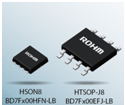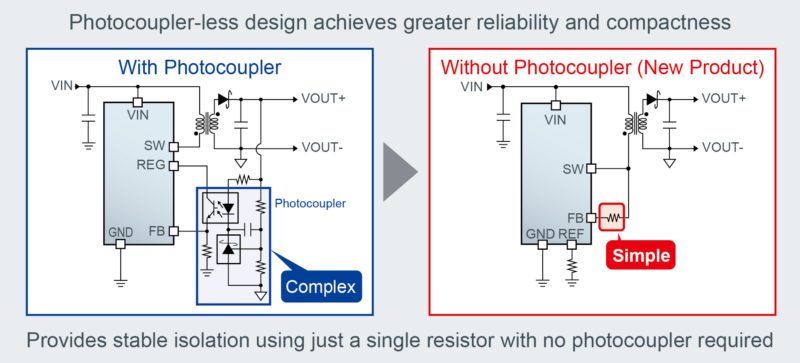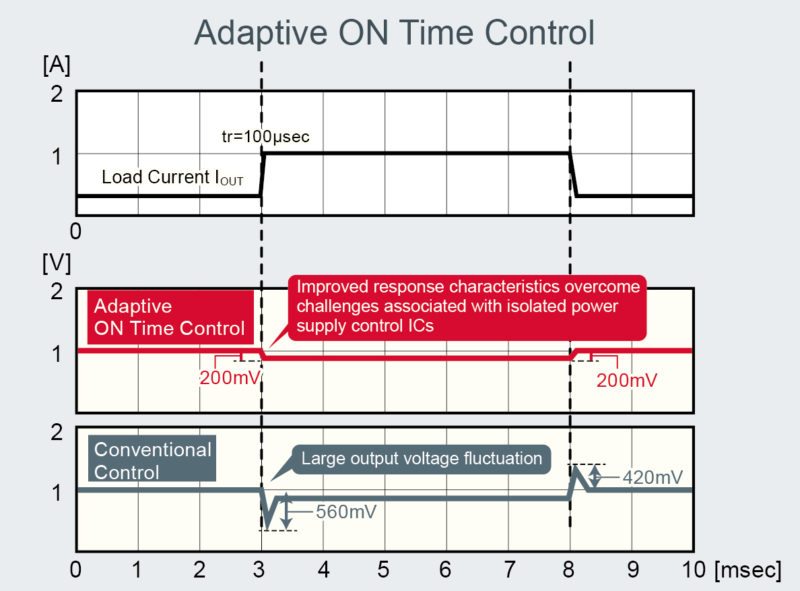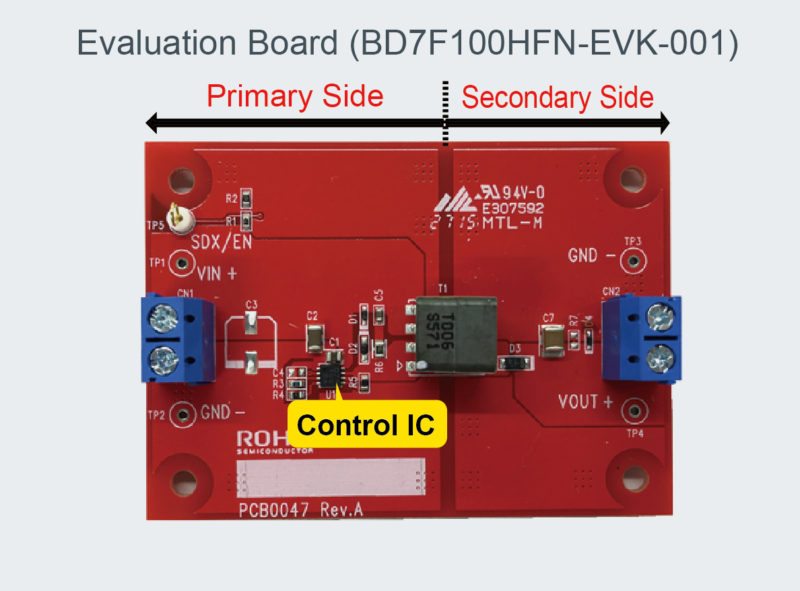Photocoupler-less or auxiliary winding contributes to greater miniaturization, power savings, and reliability
 ROHM has recently announced the availability of isolated flyback-type DC/DC converter control ICs for inverters in high power industrial equipment such as FA/solar inverters and power storage systems.
ROHM has recently announced the availability of isolated flyback-type DC/DC converter control ICs for inverters in high power industrial equipment such as FA/solar inverters and power storage systems.
Isolation is almost always built into electronic equipment to provide protection against shock and damage. High voltage, high power industrial applications (including power storage systems and solar inverters which are seeing increased adoption) are no exception, requiring even more stringent reliability demands due to the harsher temperature conditions and the need for continuous, long-term operation.
Conventional solutions utilize a photocoupler and other components for flyback-type isolated power supply control. However, this presents challenges associated with current consumption and reliability (including circuit scale and product life). In contrast, the BD7F series reduces the number of external parts by nearly half by eliminating the need for a photocoupler, providing greater energy savings, reliability, and miniaturization. In addition, a newly developed adaptive ON time control method is used to improve load response time (a drawback of conventional isolated power supply ICs), while voltage fluctuation is limited to under 200mV, contributing to even higher reliability.
Samples, along with an evaluation board integrating the BD7F series (BD7F100HFN-LB), willbe available for purchase from July through online distributors.

Key Features
1.High reliability isolation performance
The BD7F series of isolated power supply control ICs are optimized for industrial equipment requiring continuous, long-term operation under extreme conditions. Utilizing state-of-the-art power BiCDMOS processes and leveraging proprietary advanced analog technology allow ROHM to detect the secondary side voltage and current from the primary side. This eliminates the need for a photocoupler or tertiary transformer winding required with conventional configurations, reducing the number of external parts by halfwhich contributes to greater reliability, power savings, and end-product miniaturization.
 2.Improved load response characteristics through adaptive ON time control
2.Improved load response characteristics through adaptive ON time control
ON time control,typically used in conventional isolated power supply control ICs, is adoptedto minimize output voltage fluctuations caused by instantaneous changes in load current.
ROHM’s new adaptive ON time control method limits output voltage fluctuations to 200mV, 65% less than conventional solutions (at a load current of 1A and rise time of 100us). As a result, load response against instantaneous load current fluctuations is improved, increasing reliability considerably.
 3. Optional evaluation board makes it easy to verify performance
3. Optional evaluation board makes it easy to verify performance
In addition to the control ICs, an evaluation board (BD7F100HFN-EVK-001) is offered integrating the BD7F100HFN-LB, making it easy to evaluate isolated power supply operation (24V input, 5V/800mA output.
Availability: July 2016 (Samples), October 2016 (OEM Quantities)
Samples Pricing: 700 yen/Unit, excluding tax
Lineup

Terminology
Flyback (Type)
A type of circuit used for isolated power supplies.Suitable for use up to 100W, advantages include fewer external parts and lower costs. And although other methods exist (i.e. forward type), the flyback design achieves higher efficiency and greater miniaturization.
Photocoupler
A component that transfers electrical signals between two isolated circuits using light. Photocouplers typically consist of an optical element (source)that converts electrical signals into light and a photosensor (receiver) that converts the light back into electrical signals. This effectively electrically isolates the input and output sides, minimizing the effects of noise and preventing damage/shock due to voltage surges/transients.
Primary / Secondary Sides (Power Supply)
To reduce the risk of electric shock caused by the power supply, an isolation function is normally included (i.e. in the AC adapter) to prevent a direct current path. This isolation function splits the path into 2 sections – a primary side originating from the power supply to the isolation function and secondary side from the isolation function to the application (output).






